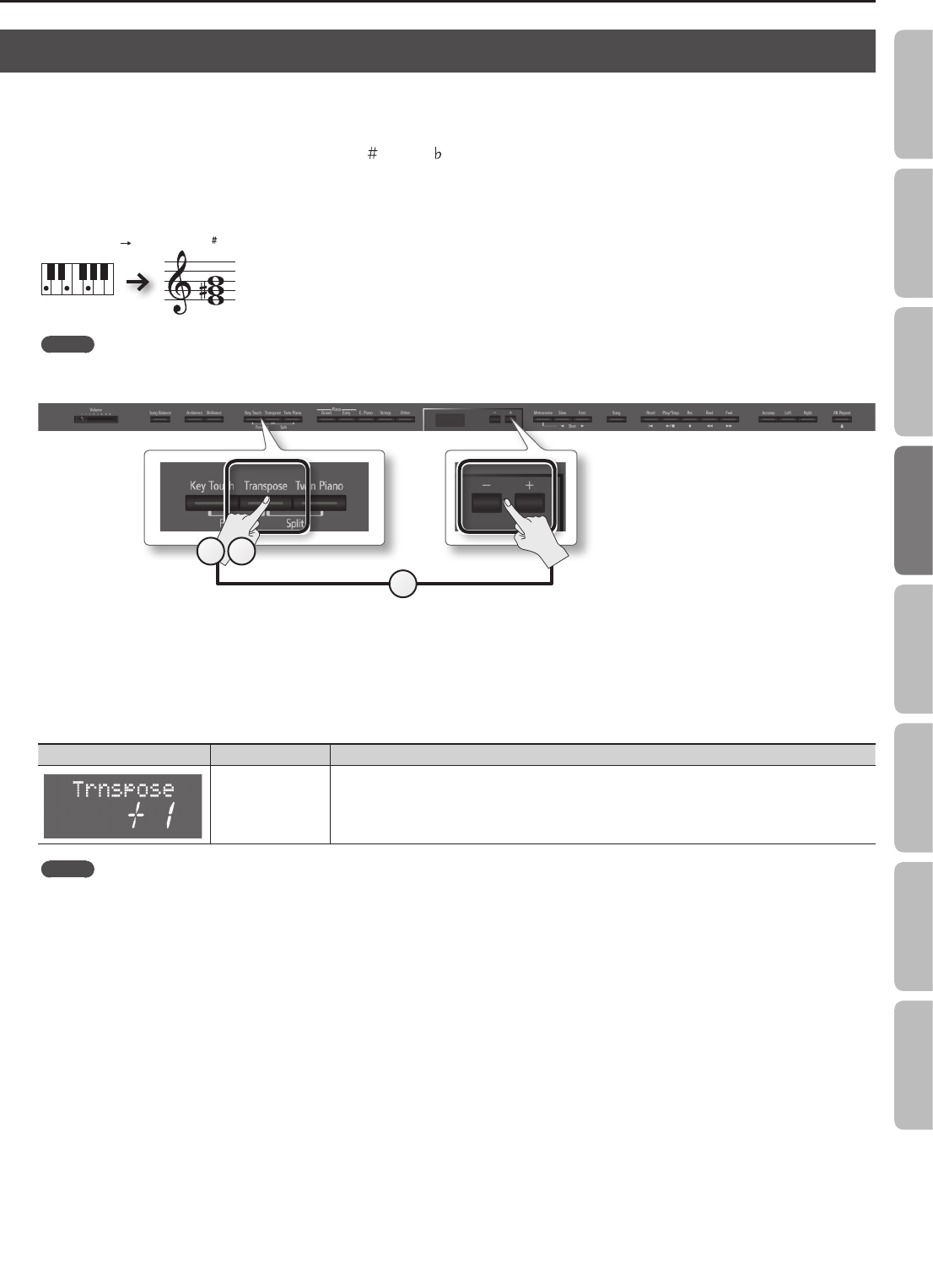
Performing
Shifting the Pitch (Transpose)
Transpose means to shift the pitches of songs and the keyboard.
The Transpose function makes it easy to do the following.
• You can use unchanged ngering to accompany a singer who is singing in a key dierent than the original music.
• A song written in a dicult key with numerous sharps (
) or ats ( ) can be performed in a key that’s easier for you to play.
• Notation of a transposing instrument such as trumpet or sax can be played as written, while hearing the transposed pitches.
For example if the song is written in E major but you want to play it using the ngering of the key of C major, you would set Transpose to 4.
If you play C E G It will sound E G B
MEMO
With the factory settings, both the song and the keyboard will be transposed. If you want to transpose only the keyboard or only the song, make
the appropriate setting as described in “Specifying What the Transpose will Aect (Transpose Mode)” (p. 45).
2
1 3
1. Press the [Transpose] button.
The [Transpose] button will light.
2. While holding down the [Transpose] button, press the [–] [+] buttons.
The display will indicate the amount of transposition.
Screen Value Explanation
-6–0–+5
(semitone units)
(default: +1)
Positive (+) values raise the pitch in semitone steps, and negative (-) values lower the pitch in semitone steps.
MEMO
You can also specify this value by holding down the [Transpose] button and playing the note that is the tonic of the key to which you want to
transpose.
* If you select a dierent song, the transposition setting will be canceled.
3. To cancel the transposition, press the [Transpose] button once again.
The [Transpose] button will go out.
21
Operation Guide Panel Descriptions Before You Play Performing Practicing
Convenient Functions
Appendix
Function Mode


















